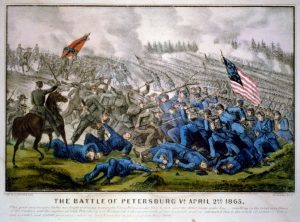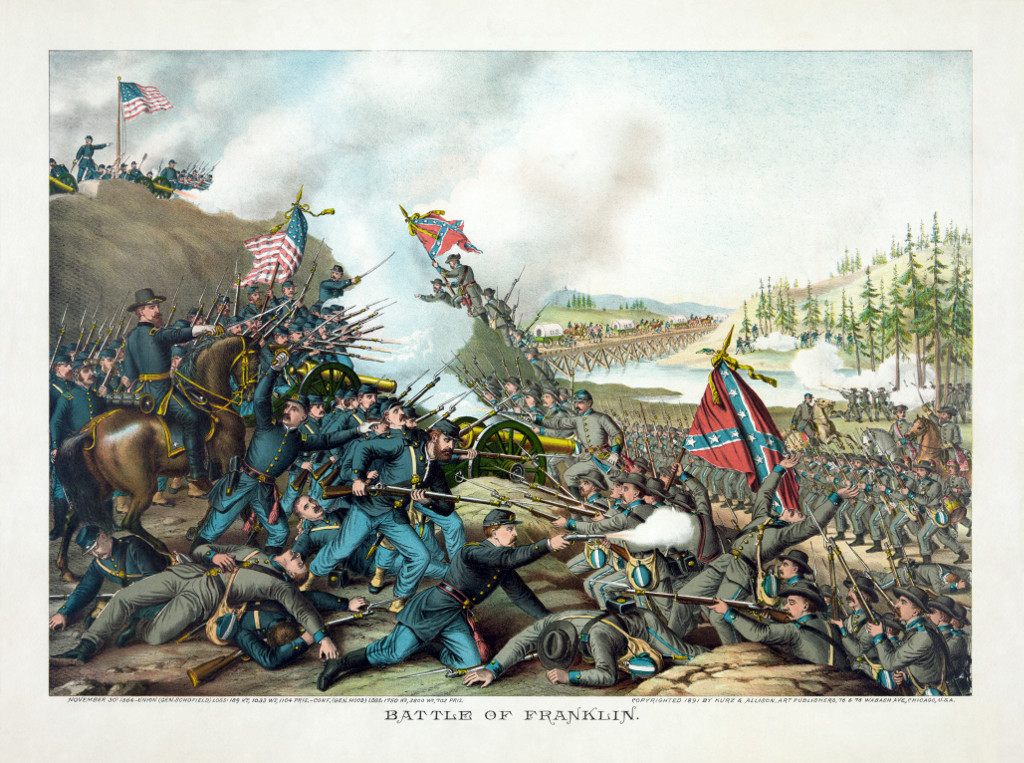If you’re from the United States, you are most likely familiar with this hymn by Julia Ward Howe:
Mine eyes have seen the glory of the coming of the Lord;
He is trampling out the vintage where the grapes of wrath are stored;
He hath loosed the fateful lightning of His terrible swift sword;
His truth is marching on.
Glory! Glory! Hallelujah! Glory! Glory! Hallelujah!
Glory! Glory! Hallelujah! His truth is marching on.
I have seen Him in the watch fires of a hundred circling camps
They have builded Him an altar in the evening dews and damps;
I can read His righteous sentence by the dim and flaring lamps;
His day is marching on.
Glory! Glory! Hallelujah! Glory! Glory! Hallelujah!
Glory! Glory! Hallelujah! His day is marching on.
I have read a fiery Gospel writ in burnished rows of steel;
“As ye deal with My contemners, so with you My grace shall deal”;
Let the Hero, born of woman, crush the serpent with His heel,
Since God is marching on.
Glory! Glory! Hallelujah! Glory! Glory! Hallelujah!
Glory! Glory! Hallelujah! Since God is marching on.
He has sounded forth the trumpet that shall never call retreat;
He is sifting out the hearts of men before His judgment seat;
Oh, be swift, my soul, to answer Him! be jubilant, my feet;
Our God is marching on.
Glory! Glory! Hallelujah! Glory! Glory! Hallelujah!
Glory! Glory! Hallelujah! Our God is marching on.
In the beauty of the lilies Christ was born across the sea,
With a glory in His bosom that transfigures you and me:
As He died to make men holy, let us die[ref]Some modern arrangements use “live” or “teach” here.[/ref] to make men free;
While God is marching on.
Glory! Glory! Hallelujah! Glory! Glory! Hallelujah!
Glory! Glory! Hallelujah! While God is marching on.
He is coming like the glory of the morning on the wave,
He is wisdom to the mighty, He is honor to the brave;
So the world shall be His footstool, and the soul of wrong His slave,
Our God is marching on.
Glory! Glory! Hallelujah! Glory! Glory! Hallelujah!
Glory! Glory! Hallelujah! Our God is marching on.
The words themselves are fine (if a bit post-millennial). The music is great, both haunting and glorious in the emotions it evokes. The baggage that comes with the song is immense.
That song was sung as an anthem by the army that destroyed the South, and not only that, but eviscerated the region during Reconstruction. Some policies imposed by that army are still affecting the South to this day.
In all the states that seceded, it’s still an open wound that hasn’t properly healed. See the recent removal of statues in New Orleans this last month.
I’m not sure what is taught in the schools where I now live. I don’t know if they teach the Union as angels and the Confederacy as demons, or if they allow for the mixture of good and bad that is humanity’s current condition to show through on all sides. Would that the Southerners got the treatment the Soviets did in university history departments. 
Not only is there the association of that song with the North, but the relatively apolitical nature of the denomination I am a member of that doesn’t like to publicly mix itself up with politics of any sort. I don’t know if it’s a remnant of an uneasy truce between abolitionists and those in favor of slavery, or a resolution of the group because of the horrors of the War of Northern Aggression that turned the group into a peace church up until World War II.
I have never seen an American flag in the sanctuary of one of our churches. It’s still jarring to me when I see one in other churches. Patriotism is uneasily dealt with in our fellowship. Our highest allegiance, by orders of magnitude, is to Christ and His church. We recognize that we are called to support our country when it’s not in conflict with God. But that song’s baggage, with the explicitly abolitionist (and hence Union/Northern) line, “let us die to make men free,” tears open a wound that has not, and will possibly never heal until Jesus returns.
I am a worship leader at my church. But because of all this, I definitely will never lead that song in church. Some of the same reasons apply to the song “God of Our Fathers.” These two songs are more associated with the nation than with God.
That doesn’t rule out all songs with militaristic imagery. As an example, take “Onward Christian Soldiers.” It was written in England in 1865, so it never got associated with one side of our Civil War.
It’s been 141 years now, but some nerves are still too raw to touch.










1
4.5
“…that song’s baggage, with the explicitly abolitionist (and hence Union/Northern) line, “let us die to make men free,” tears open a wound that has not, and will possibly never heal until Jesus returns.”
That is the most profound statement on the aftermath of the War of Northern Aggression, in context with the post, that I’ve ever read. The south was free until the North invaded. Lincoln was a lying usurper who hated, with a passion, the Negro race. Too many people do not study the unrevised records and histories of our past. Until they do, we cannot move beyond what still affects us all, North and South.
Disclaimer: Northerner, who, by all accounts of his family, should have been born somewhere south of the Mason-Dixon line, due to his refusal to accept the garbage taught about the so-called ‘civil war.’
White Christian Southerners….the 21st Century version of 20th Century Jews in Nazi Germany…and all that portends. Except there will be no Warsaw ghettos here….
I imagine ‘Father Abraham’ is also one you have little fondness for.
He is not a popular man here amongst us. Some are more intense in their hatred than others, of course.
And here I was thinking the children’s song, which is useful for tiring the kids out and getting them to be still.
5
I’m amazed, I must say. Rarely do I come across a blog that’s
both educative and engaging, and without a doubt, you have hit the nail on the head.
The problem is an issue that not enough folks are speaking intelligently
about. I’m very happy that I came across this in my search for something concerning this.